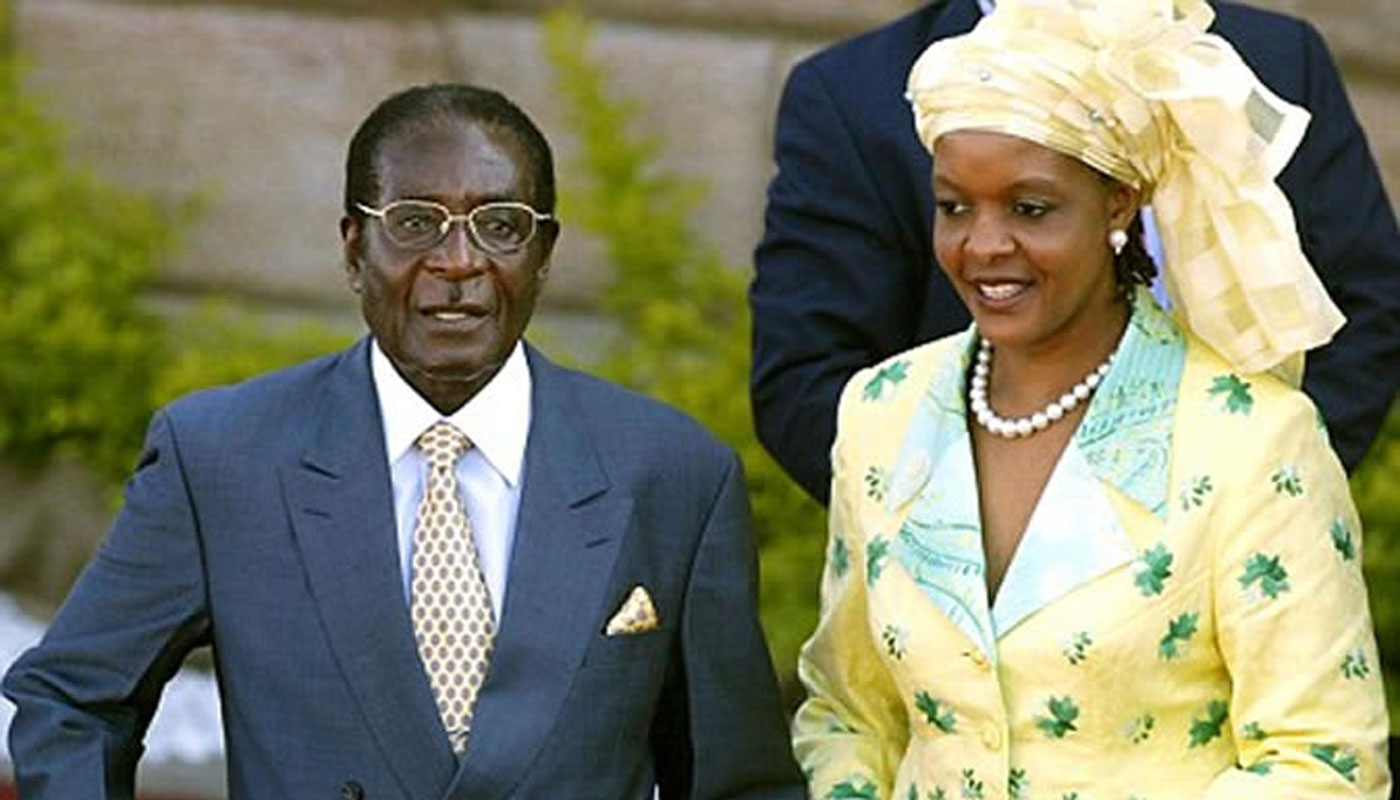
PRESIDENT Robert Mugabe could have played both puppet and puppeteer, in the Zanu PF debacle that resulted in the removal of then Vice-President Joice Mujuru while the same exposed his wife First Lady Grace as empty, a think tank has said.
BY RICHARD CHIDZA
In a comprehensive paper released last week that looks at the events prior to and after the 2014 Zanu PF fall-out and the ruling party’s emotive succession conundrum, the Research and Advocacy Unit (RAU) says Mugabe’s “opaque and secretive style of governance” made it very difficult to determine whether he was playing his cards close to his chest, or in fact, not playing any cards at all.
“Mugabe is singularly coy in accepting responsibility for decisions generally. His self-disassociation from events is flagged by marked illeism in his speech.
“Most usually, when referring to his determinations, particularly if they are sensitive, Mugabe opts for the first person plural, rather than singular, even where the decision is clearly his and his alone. This is combined with a pretentious use of the subjunctive mood, even where unnecessary and grammatically incorrect,” the group said.
It cited Mugabe’s propensity to say “we would not want that” when he meant, “I do not want that” and describing himself in the third person singular.
“And, although Mugabe is frequently praised by party members (and occasionally even by opposition figures) as being a sagacious and masterful politician, the actions taken by him which inspire these accolades are not in the public domain. There is a reluctance to admit Mugabe’s hand in many of the notable events in Zimbabwe’s political trajectory,” Rau said.
As for Grace, who appeared a willing tool in the brutal deposition of Mujuru and her acolytes when it seemed the then Vice-President was heading for the presidency, RAU said she had been badly exposed as lacking the political intellect and weight required for the country’s leadership.
- Chamisa under fire over US$120K donation
- Mavhunga puts DeMbare into Chibuku quarterfinals
- Pension funds bet on Cabora Bassa oilfields
- Councils defy govt fire tender directive
Keep Reading
“The saga unveiled Grace Mugabe as lacking both political nous and the gravitas seen as necessary for high office,” said the report. While Mugabe has for long been projected as a witty politician, always in charge of his manoeuvres, RAU says otherwise.
“It also exposed Mugabe as an uncertain and timorous leader – uncertain as to whom he may trust; unable to distinguish fact from fabrication in the endless palace intrigues around him; fearful of forfeiting the adulation of his supporters and intensely sensitive to any criticism.
“He thus, as events showed, prefers to delegate the unpleasant tasks of leadership, and, where he is unable to fall back on his default position of not making any decision at all, eschews agency in the decisions which must be made,” it added.
“The drifting and amorphous party which results, is given neither course nor frame by the party constitution, whose contents are changed, bent or ignored depending on the currents of internal real politik, where political brawn, rather than procedural nicety, determines outcomes and secures office”.
As happened to Mujuru, the report said those unable to thrive in a milieu where the only law is the survival of the fittest “are trampled underfoot and looked upon with scorn, unless rescued by the power, munificence and compassion of Mugabe, to whom they are ever after to be grateful and beholden”.
RAU cites among a litany of examples in which Mugabe has held back responsibility for the Gukurahundi atrocities of the early 80s in which an estimated 20 000 civilians lost their lives at the hands of a North Korean trained military detachment.
“While Mugabe described the period (1983 – 1987) as ‘a moment of madness’; exactly who suffered from this temporary derangement is neither stated nor known,” said the report.
Following the rejection of a government sponsored constitutional exercise in 2000 at a referendum “Mugabe seemed to quietly accept Zanu PF’s first ever loss in a poll” and blaming the land invasions that immediately followed on spontaneity by land-hungry citizens.
“The more obvious cause for the land invasions was Zanu PF’s urgent need to reassert control over their rural base ahead of an impending election,” RAU said.
“Yet the fact that the provisions on land had been inserted into the proposed constitution after the Constitutional Commission had finalised the draft, seemingly precisely to cater for the contingency of needing to develop this narrative, suggests advance planning.”
RAU said from these events, to Mujuru’s elevation to the vice presidency in 2004, Mnangagwa’s temporary fall from grace, Murambatsvina in 2005 and the 2014 debacle, “Mugabe also stood well clear of responsibility.”
These included rumours that he had admitted to losing the first round of elections in 2008 to the extent of preparing to leave office, but was urged to stay on by unnamed “securocrats, who then proceeded to bludgeon the opposition MDC formations into submission”.
“Because of Mugabe`s habit of removing himself from the picture, it is extremely difficult to determine the extent to which Mugabe directs matters or is in control of his party. It would also not be in keeping with the stated propensity of Mugabe to smile right up until the moment that he puts the boot in,” the political watchdog said, quoting Priscilla Misihairabwi-Mushonga, an MDC MP.
RAU said as was the case in 2004 when Mnangagwa seemed shoe-in to assume the vice-presidency; Mujuru had been undone by an illegal constitutional amendment and brutal purge of her acolytes, including nine chairpersons.
Mnangagwa’s allies were in 2004 also cut off with some still in the wilderness to this day while others had to be “rehabilitated” following the so-called Tsholotsho Declaration fall-out.
Like Mnangagwa, Mujuru was accused of plotting to depose Mugabe but in all this the veteran politician always assumes a distant pose that makes it difficult for anyone to associate him with any blood-letting, imagined or otherwise.









